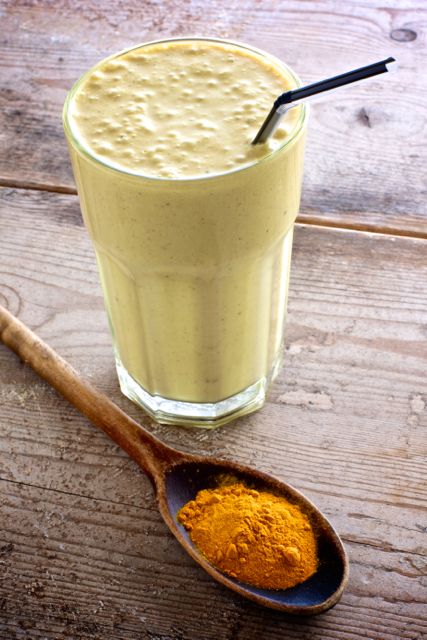Tackling Inflammation Naturally
If you’re concerned about how well you are ageing the chances are you’ve heard about the importance of tackling chronic inflammation. Chronic Inflammation is often referred to as low-grade, systemic inflammatory processes that can’t be seen on the outside, but which all the while is insidiously damaging your body and your brain.
It’s now thought that this type of inflammation is the basis of most age- related diseases such as cardiovascular disease, Alzheimer’s disease, Parkinson’s disease, some cancers, osteoporosis, diabetes and even depression. What’s more, inflammation speeds the rate of telomere erosion, which goes hand in hand with premature ageing.
So what increases our risk of chronic inflammation and what can we do about it?
Age. While you cannot can your biological age it’s worth knowing that with advancing years our risk increases. In contrast to children (whose levels of inflammatory cytokines typically increase only in response to infection or injury), adults and particularly older adults can have consistently elevated levels of several inflammatory molecules, especially IL-6 and TNF-α. In part this may be linked to mitochondrial dysfunction and oxidative damage as well as changes in hormones. This is often why lipid replacement therapy using products such as NT Factor are often recommended as we age and can have profound benefits for overall energy levels too.
Fight the Flab. Being overweight is another risk factor. Fat tissue is an endocrine organ, storing and secreting multiple hormones and cytokines into circulation and affecting metabolism throughout the body. We know for example that fat cells produce and secrete both TNF-α and IL-6, and visceral (belly) fat can produce these inflammatory molecules at levels sufficient to induce a strong inflammatory response. Fat tissue can also be infiltrated by macrophages, which secrete pro-inflammatory cytokines. The greater your BMI the more likely you are to have low-grade, systemic inflammation and potentially insulin resistance too.
Dietary Choices. This is a key area where we can have profound effects. A diet high in saturated fat is associated with higher pro-inflammatory markers, especially if you are diabetic or overweight. Trans- fats found in many processed foods and deep fried products, ready meals and take aways are also inflammatory. Simply eating too much especially refined processed foods can be detrimental – this is one of the reasons why calorie restrictive diets are popular in healthy ageing programmes. Excess glucose blood levels can be also inflammatory. So keeping the blood sugar levels balanced and watching overall carbohydrate intake is important. Focusing on a diet based around low glycemic index foods is beneficial. Excess glucose reacts with your body’s proteins, causing damaging glycation reactions while fuelling the fires of chronic inflammation and inciting the production of destructive free radicals.
Hormone imbalances. Sex hormones and adrenal imbalances can alter the immune/inflammatory response. Cells like macrophages that mediate inflammation also have receptors for oestrogens and androgens, which mean they respond to changes in sex hormone levels. For example osteoclasts are a type of macrophage found in skeletal tissue involved in breaking down bone. Oestrogens turn down their activity, which explains why post menopause as levels of oestrogens fall bone breakdown can increase.
Chronic stress can also lead to inflammation. Cortisol when working effectively is anti-inflammatory however ongoing chronic stress, which can result in fluctuations and declines in cortisol and consequently increase in inflammatory markers such as IL6. And while exercise can lower inflammation – over training is likely to do the reverse so if you are training hard daily you may need to increase your intake of anti-inflammatory nutrients and ensure you recover effectively.
Lack of sleep can also alter inflammatory cytokine levels. Disruption of normal sleep can lead to daytime elevations of these pro-inflammatory molecules including TNF alpha.
Other factors to consider include ongoing infections – whether gut dysbiosis and gut infections, chronic viral infections even periodontal disease.
Natural Options – Anti-inflammatory Foods
The good news is that nature has an abundance of anti-inflammatory foods. These include foods rich in omega 3 fats (oily fish, walnuts, chia and flax), vitamin D (e.g. eggs, oily fish, mushrooms), magnesium (leafy greens green superfood powders), carotenoids including beta-carotene (orange, yellow vegetables and leafy greens), turmeric (curcumin), genistein, and tea particularly green tea. Vitamin E rich foods help protect cells from oxidative damage – good food sources include almonds, sunflower seed, avocado, fish and shellfish. Zinc- and Selenium-containing antioxidant proteins (such as superoxide dismutase and glutathione peroxidase) reduce free radicals, which can lead to inflammation. Brazil nuts are a good source of selenium while pumpkin seeds and seafood are rich in zinc.
Certain anti-oxidants that have been widely studied for their anti-inflammatory benefits include Resveratrol and Pterostilbene – it is for this reason berries and red grapes are often included in anti-inflammatory diets and why I often use ProBerry Amla powder and other superberry powders in recipes.
Herbs and spices are important too – culinary herbs like rosemary and garlic as well as herbs often available as supplements such as Boswellia. Boswellia serrata (frankincense) is a traditional anti-arthritic in Ayurvedic medicine known for its ability to inhibit inflammatory chemicals. This is one of the reasons why Wholly Immune is such as popular supplement as it contains a wealth of nutrients and herbs including Boswellia.
Foods rich in proteolytic enzymes should also be included. Bromelain found in pineapple and papain found in papaya are good choices. Remember too that fermented foods have an important role to play in modulating inflammation being rich in probiotics, so aim to include a range of fermented foods daily.
If you’re looking for some practical options – try some of my anti-inflammatory recipes
Anti-inflammatory Turmeric Shake
Creamy coconut and lime baked sardines
Vietnamese chicken salad with chilli lime dressing
Superfood kale and kefir smoothie
Wild mushroom and chestnut ragout
Avocado, Orange And Sea Vegetable Salad With Sprouted Seeds
For more information on anti-inflammatory eating including recipes and meal plans see my book Eat to Get Younger

